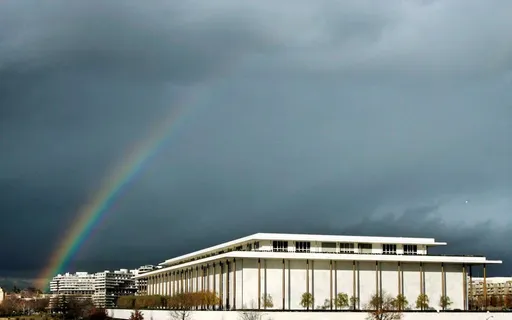Late in June, India’s Prime Minister Narendra Modi set the cat among the pigeons when he indicated that his government was ready to push ahead with the proposed Uniform Civil Code that will replace a varied set of religious and cultural codes governing matters such as marriage, divorce, inheritance and adoption.
“Can a family run if there is one law for one member and another for another member? How can the country run with two laws?” Modi questioned while addressing members of his Hindu nationalist Bharatiya Janata Party (BJP).
Around a fortnight before his comments, India’s Law Commission sought views on the proposed UCC from stakeholders, including religious organisations and tribal groups. The 30-day window for response ends on July 14.
So, what exactly is the UCC, and how will it impact different sections of society?
What is UCC?
The UCC is a proposed legal framework that aims to replace the existing personal laws based on religious customs and traditions with a common set of rules applicable to all citizens, irrespective of religion, caste, creed, or gender.
It will seek to govern personal matters such as marriage, divorce, alimony, child custody, inheritance, and adoption under a standard set of rules and regulations.
Though the Indian Constitution mentions UCC – “The State shall endeavour to secure for the citizens a uniform civil code throughout the territory of India” – successive governments since the country’s independence from British rule in 1947 have avoided the divisive issue.
The state of Goa has a version of the UCC, adopted from the Portuguese civil code.
Last year, the BJP-governed state of Uttarakhand said it would implement UCC in the state. A committee was also established to draft a proposal for the implementation. In the past, other BJP-ruled states like Gujarat, Madhya Pradesh and Assam have also expressed their willingness to follow UCC.
The country’s highest court had earlier suggested the implementation of the UCC while dealing with three separate cases – in 1985, 1995 and 2019.
In 2018, the Law Commission of India submitted a 185-page paper o the subject, concluding that implementing the UCC “is neither necessary nor desirable at this stage”.
However, on June 14 this year, the commission reopened the debate when it issued a fresh notification on UCC, stating the need to “deliberate a fresh over the subject”.
Modi’s push came shortly thereafter.
Who will be affected?
Many religions and tribal communities follow their laws, which govern inter-personal relations and related issues like marriage, divorce, inheritance, adoption etc.
The UCC will subsume all these laws under a common set of laws.
Though the Muslim community is divided on UCC, many in the community fear that UCC would abolish several of their laws rooted in Islamic law which they were permitted to follow when they chose to stay in India during the Partition of 1947.
Muslims make up around 15 percent of India’s population of 1.4 billion.
Similarly, other minority religious communities like Christians, Sikhs and Parsis also have their own civil laws governing inheritance, adoption, and succession.
Other than the religious minorities, UCC is likely to impact various tribal groups in India, especially in the country’s Northeast, where customary laws guaranteed under the constitution safeguard their age-old customs and practices. India’s Northeast is home to more than 220 ethnic groups whose inheritance, marriage, and religious freedom might be affected by a majority-centric UCC.
A 2018 report of the Law Commission highlighted that some tribes in the country adhere to ancient customary laws of succession while some others follow the matrilineal system. There are fears that the imposition of patriarchal uniformity could impact their way of life and society.
For and against
Supporters of UCC believe that separate personal laws can sometimes be discriminatory against women, and their abolishment can rectify gender inequalities in areas such as marriage, inheritance, divorce and adoption.
They argue that UCC would simplify the complexities and inconsistencies arising from multiple personal laws and would enable the efficient and timely delivery of justice.
Critics, however, say that UCC could erode the distinctive identities of various religious and ethnic groups.
By clashing with the personal laws governing various interpersonal relations and related issues, UCC would infringe upon the religious freedom of different communities and their right to preserve their cherished traditions and practices, opponents of UCC say.
They also feel that implementing a majority-centric UCC will be at odds with the spirit of the Constitution, which safeguards India's cultural and religious diversity.
Political divide
While most of the opposition parties are opposed to UCC – reasoning that it will harm the multicultural social fabric of India – some of the political allies of the BJP are also resisting the proposed move.
Among the most prominent BJP allies opposed to UCC is the Shiromani Akali Dal, a leading party representing the Sikhs and the AIADMK party in Tamil Nadu, besides some regional parties in the Northeast.
The opposition Congress – which governed India for most of the time since 1947 – reacted with anger. Former Union home minister and senior Congress leader P. Chidambaram tweeted, “Even in a family, there is diversity. The Constitution of India recognised diversity and plurality among the people of India. A UCC is an aspiration. It cannot be forced on the people by an agenda-driven majoritarian government.”
The opposition Aam Aadmi Party (AAP), in power in Delhi and Punjab, has, however, backed the UCC.
The ruling BJP-led federal government has a brute majority in the lower house of Parliament to push through the UCC if needed. In the upper house, too, the BJP and its allies have enough strength to pass any law.
























